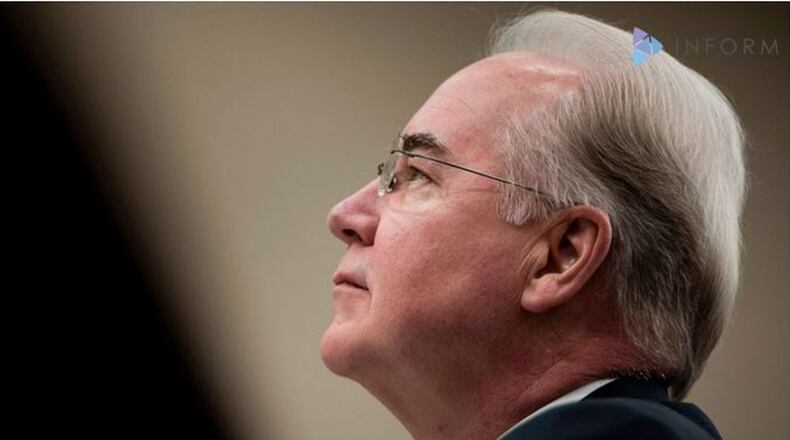Health and Human Services Secretary Tom Price argued that many people are uninsured because they don’t like Obamacare.
“When I talk to the doctors that I used to practice with right here in Atlanta, what they tell me is that the current system isn’t working for them or for their patients,” Price said in a May 7 interview on CNN’s “State of the Union.”
“We have got 20 million folks out there across this land who have told the federal government, ‘Phooey, nonsense, I’m not going to participate in your program because it doesn’t do what I need done,” he said. “So, they are paying a penalty. They’re paying the IRS a fine or a penalty because the federal government is dictating to them what they don’t want to do, or they are saying, give me a waiver.”
Price’s characterization leaves out a lot.
The Affordable Care Act includes an individual mandate, which began in 2014, to push people to obtain health care coverage. It penalizes people for each month they don't have health insurance at a minimum level of coverage. The penalty is assessed on tax returns and increases every year a person remains uninsured. The fee is the higher of either 2.5 percent of household income, $695 per adult or $347.50 per child.
There are many exemptions depending on income, membership in groups like Indian tribes, and incarceration. For people not in those categories, the health insurance marketplace lays out 14 categories that exempt people from the financial penalty if they cannot afford it, such as being homeless or filing for bankruptcy.
The American Health Care Act passed by the House May 4 gets rid of the individual mandate.
In January, the Internal Revenue Service reported that in 2016 about 80 percent of taxpayers, 117 million, indicated on tax forms that they had qualifying coverage all year while about 12.7 million claimed one or more exemptions. The most common exemption was for earning below a certain threshold in a state that didn’t expand Medicaid.
The IRS reported that 6.5 million taxpayers were paying a fine instead of getting insurance. That number plus the people who claimed exemptions from the penalty totals 19.2 million, close to Price's 20 million. That means just over 60 percent of the 20 million who aren't insured are claiming exemptions.
Steven Ullmann, director of the University of Miami’s Department of Health Sector Management and Policy, said millions of people struggle to find coverage because they aren’t eligible for Medicaid due to states not expanding Medicaid. Some also don’t qualify for the federal subsidy to purchase insurance through the exchanges.
“They are uninsured because there is no way that they can afford the insurance,” he said. “Then there are others, generally the ‘young invincibles,’ who find that the penalty of $695 is less than the cost of the insurance policies (generally over $2,000 a year),” he said. “They’d rather go bare and take their chances.”
Price’s office didn’t respond to our queries. His claim is similar to a statement by President Donald Trump at a Feb. 27 meeting with health insurance company executives.
“It’s gotten so bad that nearly 20 million Americans have chosen to pay the penalty or received an exemption rather than buy insurance,” Trump said. (That claim was debunked by fact-checkers including the Washington Post and CNN.)
Our ruling
Price mentioned the number of people who are either paying a fine because they don’t have insurance or are claiming an exemption, usually because they don’t qualify for affordable coverage. About 6.5 million taxpayers reported the penalty in 2016 tax filings, and 12.7 million claimed one or more exemptions, bringing the total to about 20 million.
But Price makes it sound like all of those people are simply declining coverage. In reality, many can’t qualify for affordable coverage, even if they would like to.
We rate this claim Mostly False.
“We have got 20 million folks out there across this land who have told the federal government, ‘Phooey, nonsense, I’m not going to participate in your program, because it doesn’t do what I need done.’ “
— Tom Price on Sunday, May 7, in an interview on CNN’s “State of the Union”
About the Author
The Latest
Featured


